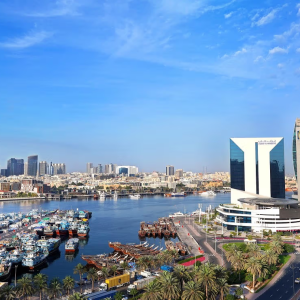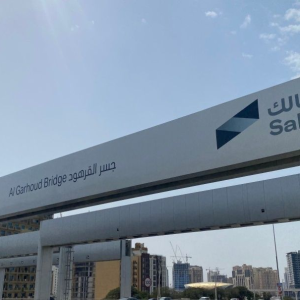For many Indian expatriates and investors, owning Dream Home in Dubai has long been a dream drenched in promise. From its shimmering skyline to luxury waterfront living, Dubai continues to market itself as the land of opportunity. With relatively lax regulations and high rental yields, the city draws thousands of Indian buyers every year.
But lately, there’s been a sharp twist in the tale. Many Indians are now caught in a cycle of financial instability—all due to one major misstep: buying property in Dubai using credit cards.
Easy Payments, Big Promises – and a Dangerous Shortcut
Real estate developers in Dubai have been rolling out schemes that appear tailor-made for the aspiring middle class. One of the more surprising offers? Pay your down payment—or in some cases, the full amount—using a credit card.

To the average investor, this seemed like a no-brainer. No lengthy bank paperwork, no large sums needed upfront, and instant ownership status. For those with limited savings but big dreams, it was a shortcut to status and stability.
But credit cards are not designed for long-term debt or large purchases. Unlike home loans, credit card dues can carry massive interest rates. A one-bedroom apartment booked with a swipe could, over time, double in cost if repayments falter.

Why Indians Were Especially Targeted
Indians make up one of the largest investor groups in Dubai real estate. Many come with deep-rooted aspirations of owning a piece of this glamorous city.
Developers and agents are well aware of the emotional appeal a Dubai property holds for Indians—particularly Non-Resident Indians (NRIs). Many see it as both a prestige marker and a backup plan for the future.
As a result, buyers from India were often presented with “exclusive” credit card-friendly deals and flexible payment options. What wasn’t always highlighted was the long-term impact on their credit health, both in the UAE and back home.
From Homeowners to Debtors – The Downward Spiral
Once the initial excitement wore off, reality hit hard. Credit card statements started ballooning.
Some owners, especially those who bought off-plan properties still under construction, weren’t receiving any rental income. Others had assumed they could “flip” the property at a profit, only to find the market had cooled or that resale wasn’t as simple as expected.
Without a proper repayment strategy, many found themselves drowning in interest payments. Late fees started piling up.
Some even began using one credit card to pay another—robbing Peter to pay Paul. And for those working salaried jobs in the Gulf, this spiraled into missed EMIs, legal notices, and frozen bank accounts.
The Hidden Risks No One Talks About
While many people associate credit card misuse with luxury shopping or vacations, using plastic money for property investments comes with higher risks.
Unlike loans from a bank—where the institution does a thorough background and repayment capability check—credit card transactions require minimal scrutiny. That means people could make hasty, emotional decisions without fully understanding their financial limits.
Moreover, Dubai has strict laws around bounced cheques and unpaid debts. Many Indians didn’t realize that defaulting on credit card payments could even lead to legal complications, visa issues, and potential travel bans.
Peer Pressure and Social Status Played a Role
In Indian social circles, owning property in Dubai carries a certain charm. It’s a status symbol—proof of having “made it” abroad.
This cultural nuance pushed many to jump into purchases even when they weren’t financially ready. Friends and relatives would share stories of doubling their investment or securing massive rent from tourists.
To keep up appearances, some borrowed beyond their means, confident that a salary raise or side hustle would cover the dues. But as the economy fluctuated and the cost of living rose, many found themselves outpaced by their own ambitions.
The Emotional Toll of Debt and Silence
Beyond the financial mess, the emotional weight has been devastating for many. Shame, fear, and isolation are common.
Families back in India often have no clue about the real situation. On social media, these individuals still post curated images of their life in Dubai, hiding the fact that they’re struggling to pay even the minimum balance.
Some have even delayed marriages, sold assets back home, or started working multiple jobs just to keep up with the credit card bills. A few have already returned to India, leaving behind unpaid dues and shattered dreams.
What Could Have Been Done Differently
Hindsight offers clarity. A more cautious approach—such as taking out a regulated home loan or saving up for a larger down payment—might have prevented many of these situations.
The idea of instant ownership was tempting, but not sustainable. Financial advisors often stress the importance of understanding debt instruments before using them. A credit card, with its high interest and short-term design, is rarely suited for real estate transactions.
Better financial literacy, combined with stricter regulation from authorities on how properties can be sold, could reduce such incidents in the future.
Developers Also Share Some Blame
It’s important to note that developers and agents who actively encouraged this payment mode aren’t entirely innocent.
Many of them designed schemes that exploited emotional triggers and overlooked long-term affordability. Some glossed over the fine print, making it sound like a risk-free investment.
For short-term gain, they lured buyers into an unending loop of repayments. And once the sale was made, very few offered any after-sales guidance or support.
Is There a Way Out for Those Affected?
While the road ahead isn’t easy, some have started negotiating directly with banks for repayment plans or consolidating their credit card debt into personal loans with lower interest.
Financial counseling and legal advice can also help, especially for those facing court notices or travel restrictions.
There are also community support groups emerging in Dubai, where individuals share advice and help each other rebuild their lives without shame.
The key is to take action early, before the debt becomes unmanageable. Silence and denial only make it worse.
Lessons for the Future Homebuyer
For those still dreaming of owning property in Dubai, this cautionary tale carries valuable lessons.
Do your research. Understand what you can realistically afford. Always think long-term. Just because something is possible doesn’t mean it’s smart.
More importantly, don’t let social status, peer pressure, or clever marketing campaigns push you into a financial trap. A home should bring security, not stress.
And if you ever hear the words “You can pay with your credit card” when buying property—pause, ask questions, and think twice.
Do follow UAE Stories on Instagram
Dubai Launches World’s First AI-Powered ‘Emirati Family’: But What Is Its Purpose? Find Out!













